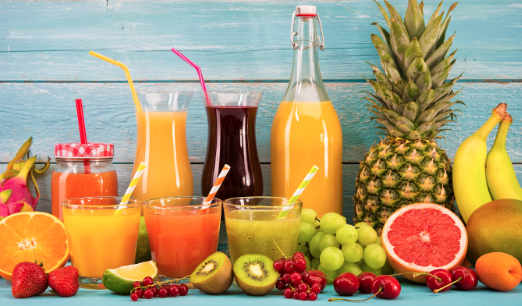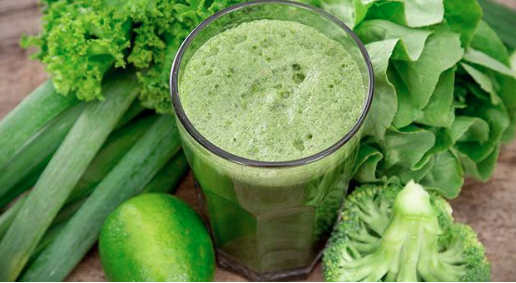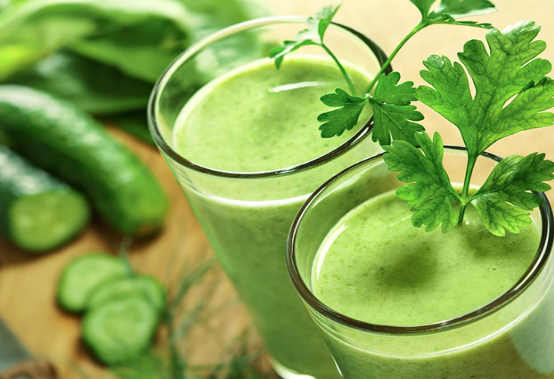Table of Contents
When it comes to juicers in the market, there are many names referring to two main types: slow and fast juicer. In other words, they can be called masticating and centrifugal juicer. So how do you know which one is which? And what are the differences between these two? To make it clear, read the article!
Why should you juice fruits and vegetables?
We all know that fruits, vegetables, greens, and nuts are good for health. And there are different ways of consuming the nutrients from them. One of the most effective ways to get the best out of them is juicing. There are plenty of health benefits that a glass of juice offers. It helps you lose weight, brings clearer skin, gets better overall health, and reduces stress. Women are in love with juicing diets as they help detoxify the body, reduce toxins in the digestive tract.

Juices are healthy and beneficial for your body
Once the body is free from those toxins, the digestion process will be improved. As a result, your body will be able to restore energy and clear up any skin conditions.
In addition, when you detoxify your body, you are getting rid of excess waste in your intestines. That means you can reduce your weight and feel less bloated.
Also, a glass of juice everyday provides enough necessary vitamins for your body. In general, juicing helps improve your general health, makes it function well and reduce stress.
With that being said, it is important to get your own home juicer so you can prepare juices everyday. However, you might be confused with different types of juicers in the market. Read on to know the difference between slow and fast juicer.
What is a slow juicer?
Slow Juicers or Cold Press Juicers are the new type of juicers. As the name mentions, the process of juicing is slow. Also, this type of juicer is more expensive and there are not many models available in the market. That’s why compared to fast juicers, this type is not as popular. Slow Juicers crush the fruit or vegetables into juice and don't generate heat. In addition, they produce more pulp and the juice has more nutrient content. And because there is no heat during the process, it remains the natural taste of the fruits and vegetables.
Slow juicers are also not easy to clean because they have more components. However, between slow and fast juicer, it is said that the slow one gives you more nutrients and better quality of juice. For those who love pulpy juices or prefer juices from leafy greens, sprouts, Kale, herbs and grasses, they will need a slow juicer. This is a great option if you don’t mind waiting for the juice to be ready to get maximum nutrients from it. Also, the higher budget also needs to be considered.

Slow juicers can juice leafy greens and nuts
What are the advantages of slow juicers?
Slow Juicers have some advantages that you can’t find in a fast juicer:
- It has the ability to process leafy greens such as mint, kale, sprouts, wheat grass, other herbs and nuts.
- Due to the slow process, it crushes and extracts the maximum nutrients from the vegetables, fruits and leafy greens.
- Slow juicers offer a higher quality juice with more nutrients and natural taste.
- Slow juicers are much quieter.
What are the disadvantages of slow juicers?
Besides the advantages that it offers, the slow juicer has some downfalls:
- It doesn’t come with a pulp dumping mechanism, so pulp remains in the machine.
- Not easy to clean.
- The process of juicing is slow, which is 3 times longer than the fast one.
- Not suitable for people who are in a rush.
- Slow juicers have a higher cost, can be 2 or 3 times more expensive than a fast juicer.
What is a fast juicer?
Compared to slow juicers, fast juicers or centrifugal juicers are way more popular. You can find many different models in the market. This type of juicers work based on a fast rotating centrifugal mesh. This metal blade breaks down fruits, vegetables and some greens into the juice. During the process, the pulp is dumped in a pulp container which is separated from the machine, so it will be easy for you to clean.
If you are busy and don’t want to wait for a long time for a glass of juice, this type of juicer is definitely what you need. This also helps you save time of cleaning and save money as fast juicers are much cheaper than slow ones. However, it is very loud when in use, so it might wake your family up when you want to juice in the morning.

Fast juicers are cheaper
What are the advantages of fast juicers?
- Fast juicing speed is its biggest advantages
- Fast juicers have the ability to produce a large quantity of juice
- Easy to clean
- Cheaper price compared to slow juicers
- Juice a large amount of fruits, vegetables and greens quickly and efficiently
What are the disadvantages of fast juicers?
- The fast juicers are louder than slow juicers when in use
- The fast juicers generate more heat because of the fast spinning mesh blade
- The juice will be more foamy
- Can’t be able to juice leafy greens and nuts
- The quality of nutrients from a fast juicer is not as good as the quality of nutrients from a slow juicer.
In conclusion, both slow and fast juicer have their advantages and disadvantages. If you just get started with a tight budget, and you don’t worry too much about losing a small amount of nutrients from the fruits and vegetables, the fast juicer is the perfect option. On the other hand, if you want to add leafy greens to their juice or you want the maximum nutrient content from the juice and are willing to pay more, you should opt for a slow juicer. When you have got the decision on which type of juicer you want, you also need to consider the brands, ease of use and warranty policy. Good luck with your choice!
Ken
ContributorT: @ManualsFile
https://ManualsFile.com
Mon - Sun 09:30 am - 05:30 pm